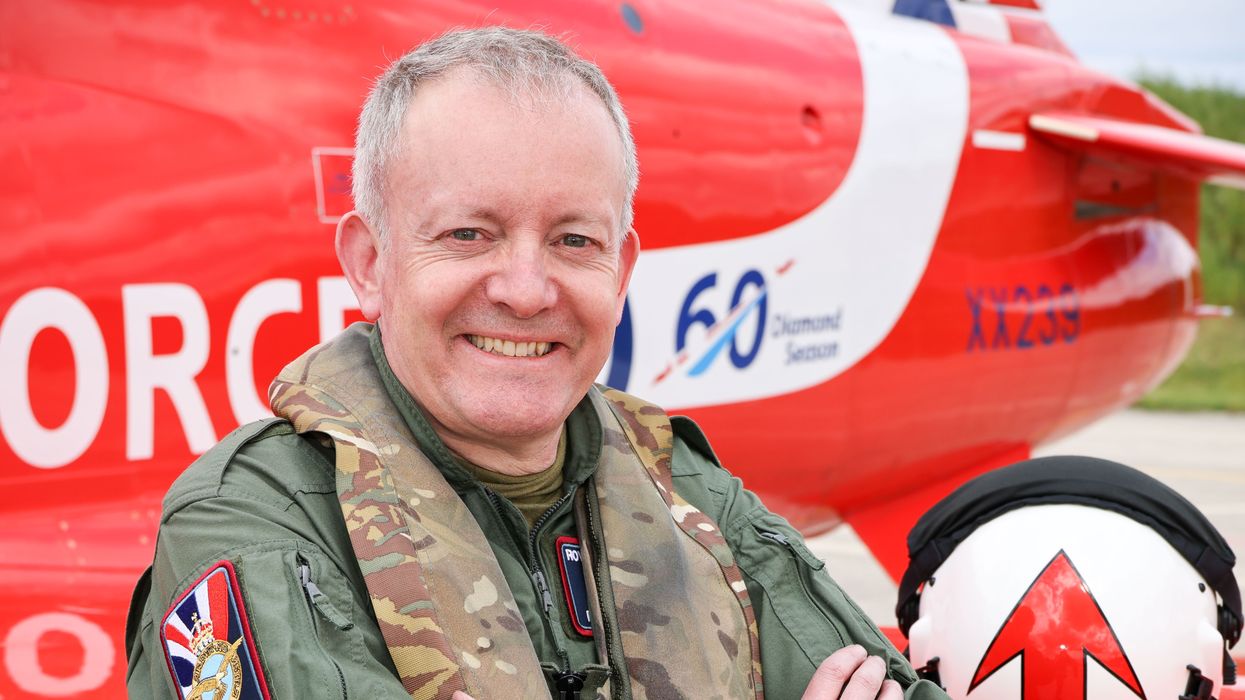SIR RICHARD KNIGHTON sits at his desk with a simple motto that has guided his remarkable career: “Work hard, do the best you can, enjoy every minute.”
It’s a philosophy that has taken him from a schoolteacher’s son in Derby with no military connections to becoming the first engineer ever to lead the Royal Air Force as Chief of the Air Staff.
In a service historically dominated by pilots, Knighton’s appointment represents more than a personal achievement – it signals a fundamental shift in how Britain’s aerial warfare branch views leadership and expertise in an era of rapid technological advancement.
“I’m certain that I won’t be the last non-pilot to lead the air force,” Knighton says confidently. “As technology changes, as the character of warfare changes, the opportunity for people from other professional backgrounds to lead the service will only grow. I’m just fortunate enough to have been the first one.”
Knighton joined the RAF in 1988 as a university cadet while studying engineering at Clare College, Cambridge. What drew him to military service was not family tradition – his father was a craft design technology teacher, and his mother worked in a nursery – but rather a blend of “duty, excitement, interest” and the responsibility of leadership.
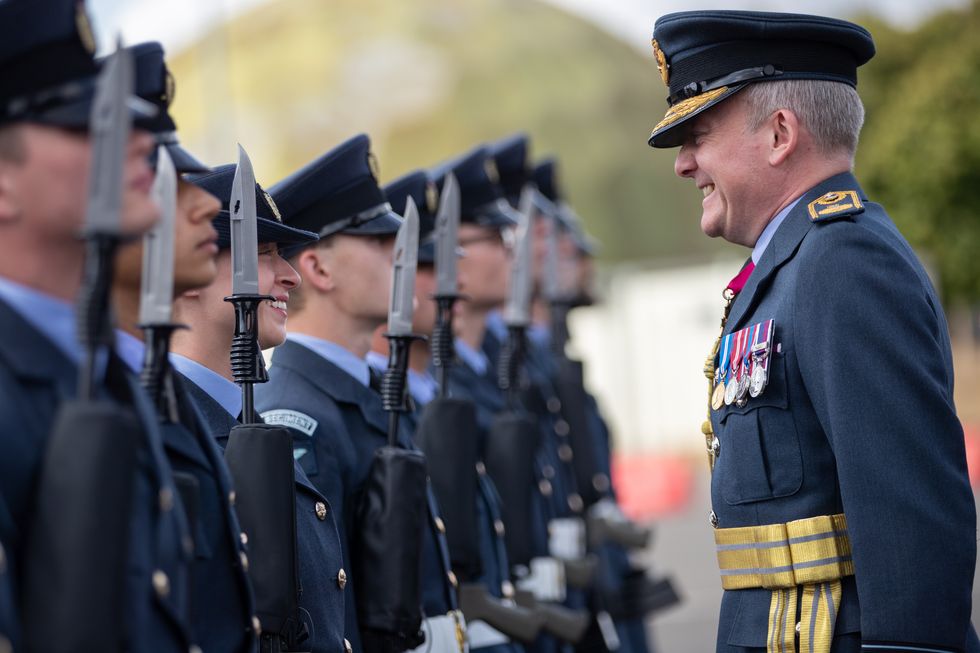
Unlike many of his university classmates who were frantically searching for jobs during their final year, Knighton had already charted his course. “I’d already committed to join the Air Force before I went to university,” he recalls.
With an RAF Sixth Form Scholarship, followed by a university scholarship, his path was set, while others were navigating the uncertainty of “the milk round,” as he puts it.
His engineering background has shaped his leadership approach in profound ways. “As an engineer in the air force, you are never, at any point, the leading expert in a thing,” he explains. “You rely on the advice of your technicians and your experts, and then you pull together that information, and you make a decision.”
This collaborative mindset has proven invaluable as he oversees an organisation of more than 30,000 personnel. “Ever since my very first job, as a 22- to 23-year-old, I’m used to asking for advice, assimilating that, and making judgments and decisions and leading through other people.”
His early career followed a conventional path for an RAF engineer – working on frontline aircraft including Nimrods, Tornados and Harriers, with deployments to the Balkan conflicts. Though not in the cockpit during combat operations, Knighton emphasises the team nature of air power: “It is about the team that delivers the operational output. You might have the pilot in the cockpit that actually delivers the lethal force, but it’s the whole team that enables that person, that pilot, to deliver that effect.”
Since his promotion as Air Commodore in 2011, Knighton has been involved in strategic and capability planning for the RAF and Ministry of Defence. He was the Assistant Chief of Air Staff, the first nonpilot to be appointed to the role, and was responsible for the strategic coherence and coordination of the RAF and planning for the RAF’s centenary programme.
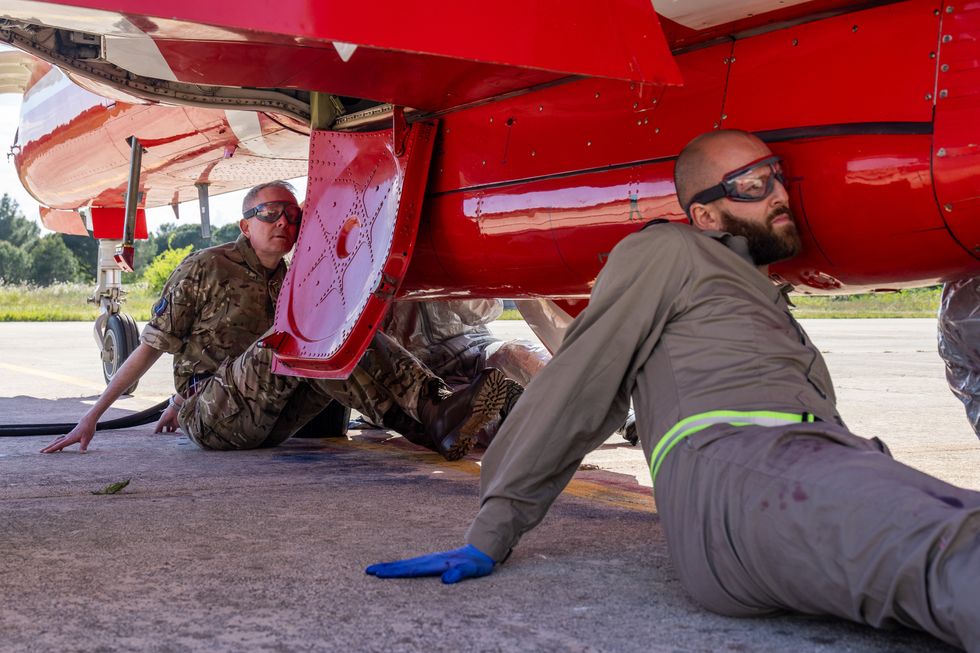
The most senior role he has held in the Ministry of Defence was as the Deputy Chief of Defence Staff for Military Capability. Prior to his appointment as Chief of the Air Staff, he was Deputy Commander Capability and People at Air Command, where he was responsible for the strategic planning and delivery of all aspects of RAF capability, including people, equipment, infrastructure, and training.
Asked what qualities are necessary to lead the RAF, Knighton crystallises his approach into three distinct elements: “The first thing is, you set the direction. Then you need to put the people, the right people, in the right seats. And then the third thing is, you’ve got to do everything you can to enable them to deliver that direction.” Communication features heavily in his leadership toolkit. “I’ve worked very hard on communicating to the whole organisation about why we exist, what we’re trying to do, and being honest about some of the challenges that we face.”
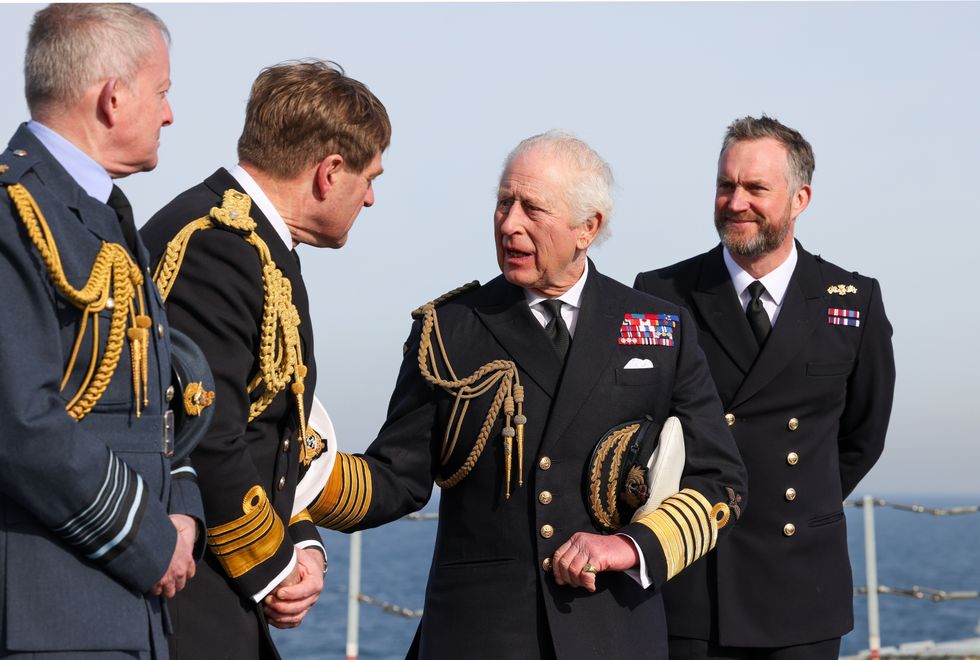
This commitment to transparency extends to his approach to diversity and inclusion – areas where the RAF has faced both scrutiny and challenges in recent years.
“Fundamentally, our job as an air force is to be ready to fly and fight,” Knighton states firmly. “All of us and all of what we do needs to be focused on that operational capability and excellence.”
It’s through this operational lens that Knighton views diversity – not as a box-ticking exercise, but as a strategic imperative. “What I want is the very best people in the air force, and to do that, we must open up our doors to the widest possible array of talented people.”
He cites evidence that “teams that are diverse bring better problem-solving abilities and generate better solutions to problems,” adding that “the value in diversity and inclusion is that you get an organisation that is better at what it does.”
There are currently around 17 per cent women and 4.5 per cent personnel from ethnic minorities in the RAF – figures Knighton acknowledges can be improved. However, he points to encouraging trends:
“Over nine per cent of the people who’ve joined in the last year came from ethnic minority communities. Over the last four or five years, there has been a 50 per cent increase in the number of people from minority ethnic communities who joined the service.”
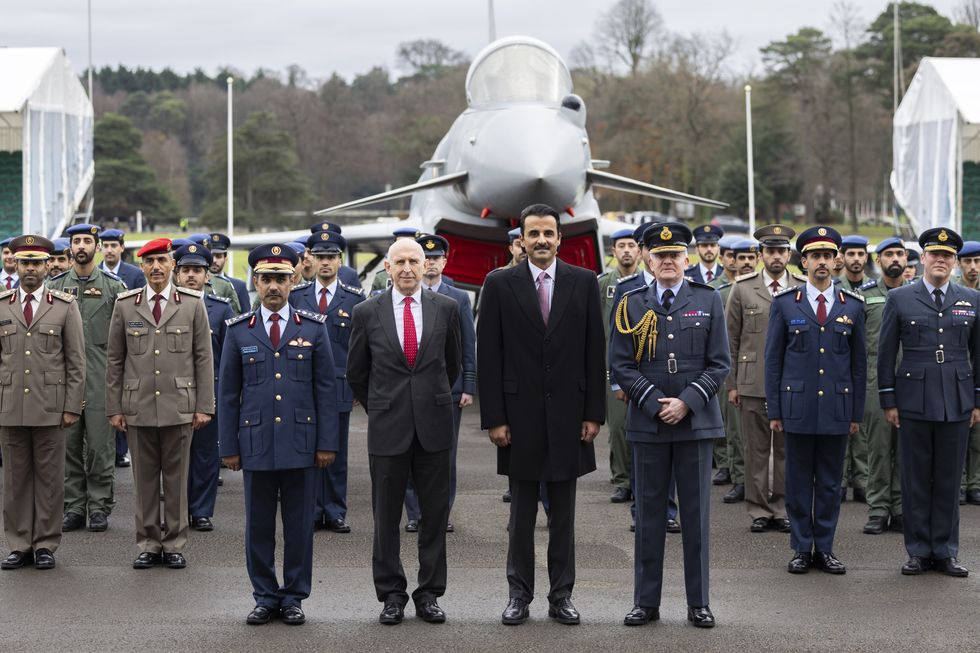
Notably, the RAF has moved away from specific percentage targets – 40 per cent women and 20 per cent ethnic minority representation by the end of the decade – that led to controversy under Knighton’s predecessor, Sir Mike Wigston.
An internal inquiry found in June 2023, soon after Knighton took charge, that the RAF took action, such as pausing job offers for white men, to prioritise women and ethnic minorities, which ultimately resulted in unlawful positive discrimination.
“The defence remains determined to increase representation from women and people from ethnic minorities, but it recognises that setting targets is not appropriate and can lead to inappropriate behaviour,” Knighton clarifies.
Instead, he focuses on creating an environment “where people feel valued” and building practical outreach strategies to communities traditionally underrepresented in the service.
He’s pragmatic about the goals for 2030: “We won’t achieve what those levels of ambition were set for, I can confidently say that, despite all the hard work.”
Yet, he remains committed to steady progress, focusing on cultural change rather than statistical targets. This shift represents more than semantics – it’s about building lasting change through authentic engagement rather than administrative pressure. By emphasising operational excellence as the primary motivation for diversity, Knighton has repositioned inclusion as a capability enhancer rather than a compliance requirement.
“We’ve done huge amounts of work to inform and educate broader sections of society about the air force, about what service it brings, and particularly around the kind of value it is for the country, and the sort of technological excellence , and the leadership and responsibility that comes with it,” he says, adding: “I think that may be playing a part in the numbers that I described in terms of the growth.”
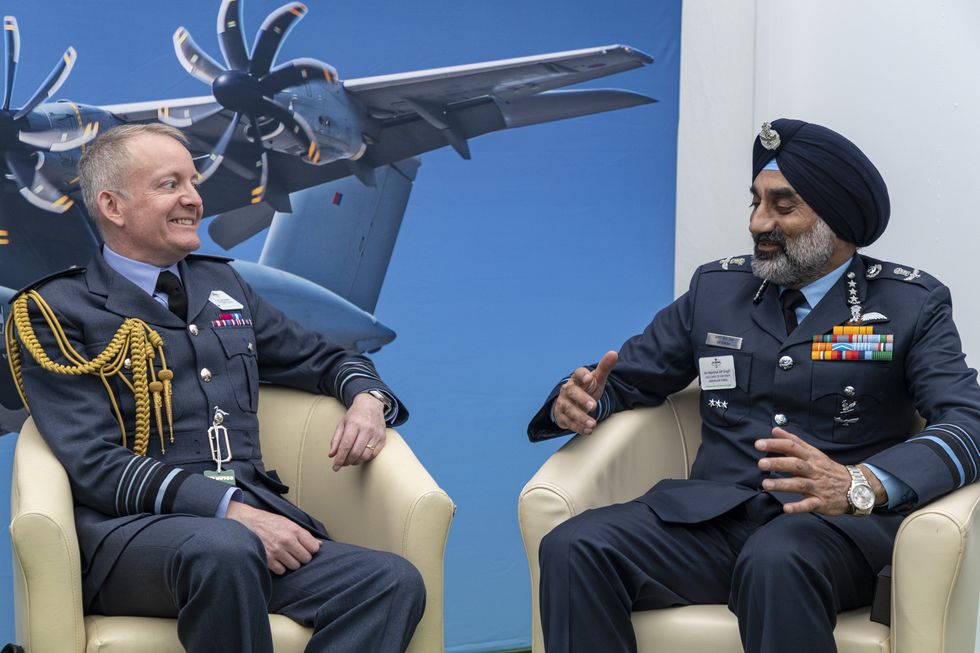
When pressed on the persistent issue of ethnic minority talent hitting a glass ceiling in the RAF – a phenomenon mirrored across many British institutions – Knighton acknowledges the challenge.
“If you look at the history of this, the senior people in the air force today... will have joined the air force in the very early 1990s, so over 30 years ago,” he explains. “The numbers game matters. It is very simply a fact that if you have fewer people at the bottom, the probability of making the top is that much smaller.”
Yet, he accepts the challenge to look deeper: “Your challenge to think harder and look harder at whether there might be systemic barriers to progression and retention – I think that’s a fair challenge,” he says, when pressed on the issue.
The opening of more senior pathways to non-aircrew personnel – a change implemented by Sir Mike – may help address this imbalance. “We’re already seeing that happen, with increasing numbers of women fulfilling our command appointments – pinnacle jobs – at wing commander and group captain. And over time, that will flow through.”
Asked if he can envision a black or Asian officer one day occupying his position, Knighton answers without hesitation: “Yes, absolutely.”
Recruitment from certain communities, particularly south Asian Britons, has been “very slow” despite decades of effort. Knighton identifies several barriers, including visibility and cultural gatekeepers.
“If the level of representation in the service is low, it’s harder for people to see themselves as part of that service,” he explains. “We can overcome that by using interviews like this, by using our advertising, using our outreach and engagement to help inform those communities, and by using those people who are in the service, who come from those communities, as role models.”
He stresses the importance of engaging not just potential recruits, but influencers within communities: “This is not just about aiming our advertising at the 16- to 25-year-olds we particularly want to target, but actually ensuring we are visible as a service to that wider community.”
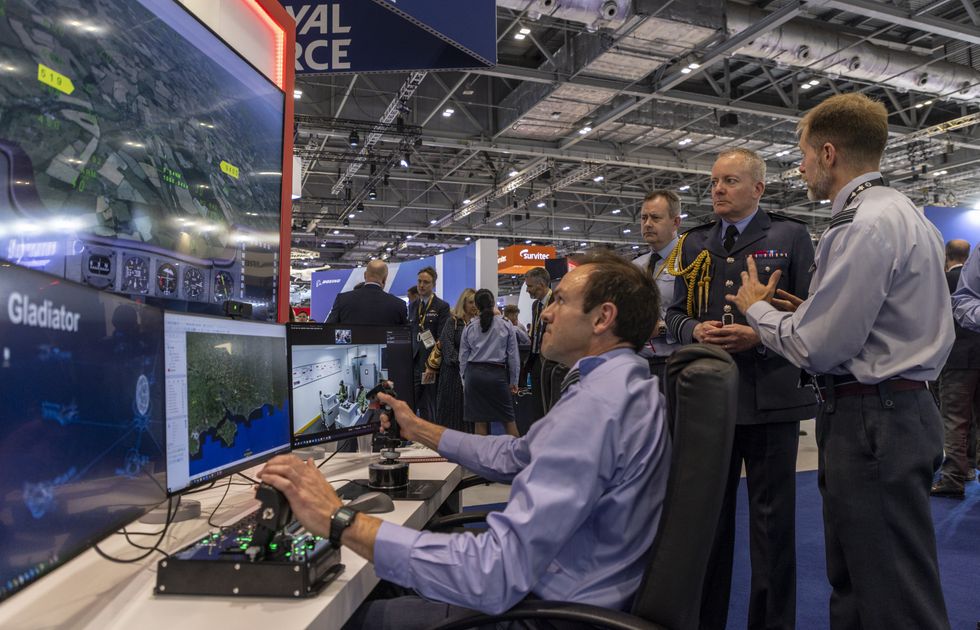
These ‘gatekeepers’, as Knighton calls them – parents, teachers, community leaders and extended family members – often hold significant sway in career decisions, particularly in close-knit ethnic minority communities. Their perceptions of military service, sometimes formed decades ago or influenced by experiences from countries of heritage rather than contemporary Britain, can create invisible barriers to recruitment.
“We need to ensure the wider community recognises that this is both something important to the country, and it’s highly professional, it’s a high-status role, and we should use that to help gatekeepers encourage and recognise this as a vocation and a job that is important to the nation, and therefore something they would want their grandchildren, their children, their nephews and nieces to come in and join,” he notes.
This recognition matters deeply in communities where professional standing carries significant weight. While medicine, law, and business have traditionally been preferred career paths in many south Asian families, Knighton believes demonstrating the RAF’s technological sophistication, leadership opportunities, and service ethos can help reposition military careers as prestigious options worthy of consideration, alongside these established professions.
Asked whether the historical contributions of black and Asian soldiers in the world wars should be highlighted more to inspire contemporary recruitment, Knighton agrees: “Maybe there is some opportunity for those communities to recognise those who had gone before them, and help us to share the idea that this is a noble profession that we’re part of.”
Knighton’s days are relentlessly demanding – starting at 7:30am with his cycle commute and often ending well past 11pm, filled with high-level meetings, mentoring sessions , and formal events.
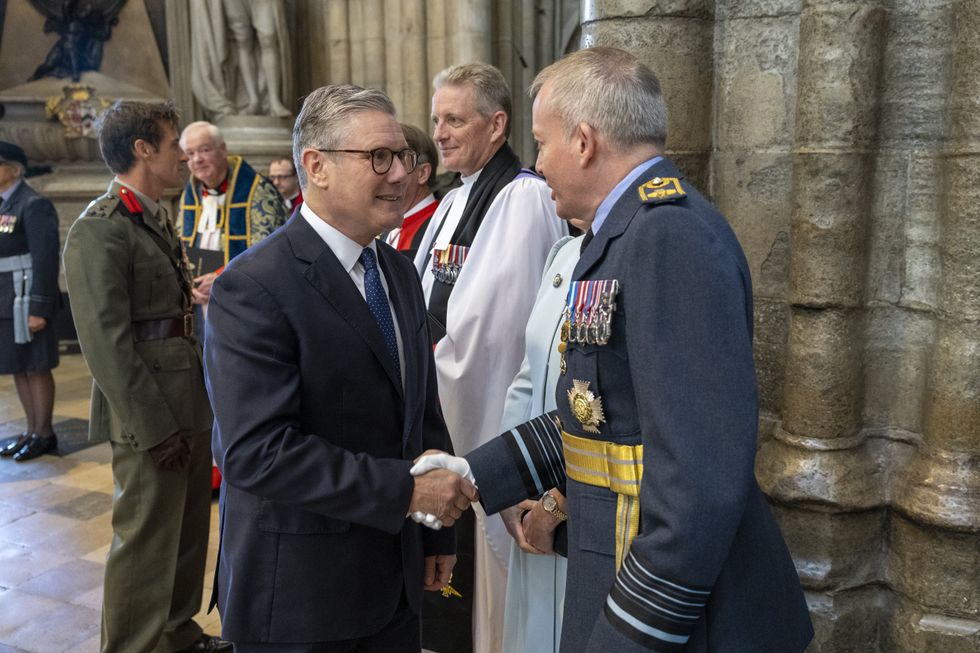
How does he maintain energy for such a gruelling schedule? “I enjoy it. I’m very much a glass-half-full kind of character. I get a great deal of energy from working with other people,” he explains. “I’ve learned in my career that optimism and energy are infectious.”
This philosophy extends to his leadership approach, shaped by advice from a former superior: “Nobody wants to work for a miserable b*****d.”
His guiding principle throughout his career has been one he shares with Maya Angelou: “People will forget what you said, people will forget what you did, but people will never forget how you made them feel.”
When he eventually steps down, Knighton will look back “with great pride” on his service.
“The RAF has given me all my education. It’s given me opportunity, and skills. It’s taught me a great deal about how to live and how to lead.” His voice carries unmistakable emotion when adding: “I’m enormously proud to have been part of it, and unspeakably proud of being able to lead my service. It’s just phenomenal.”
And his guilty secret for unwinding after those long days? “Friday evening, nine o’clock Gogglebox – that is fantastic escapism and the perfect way to relax.
